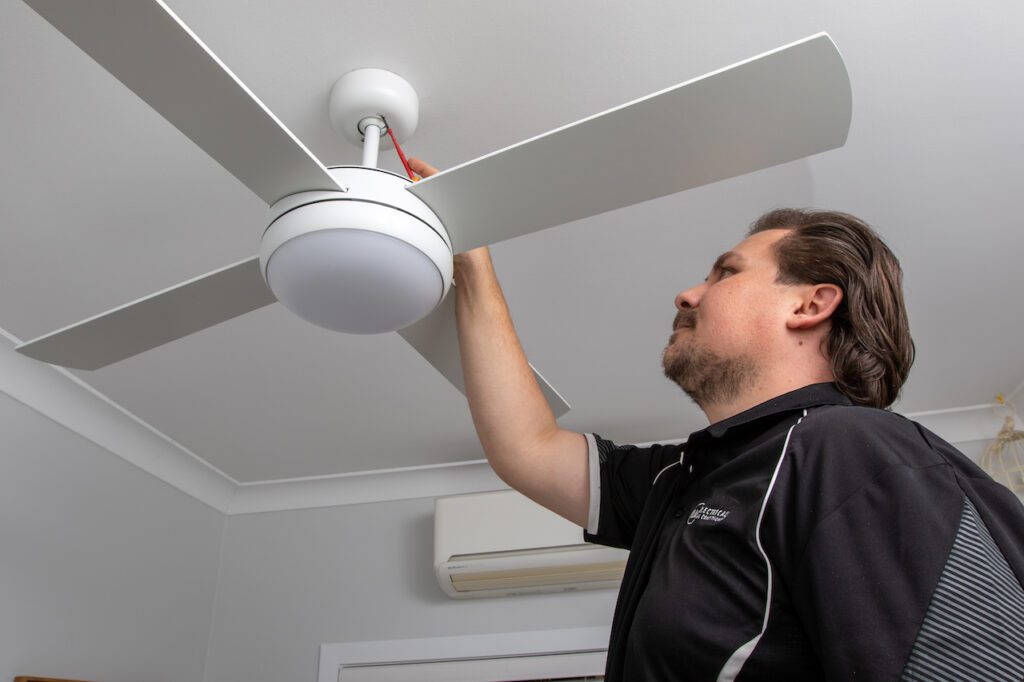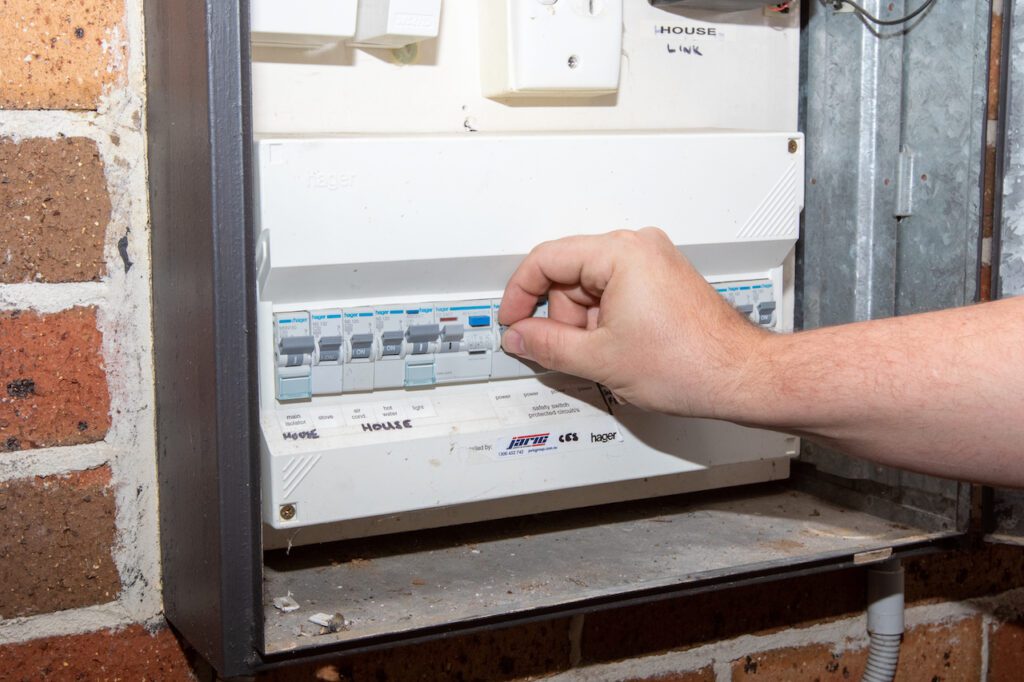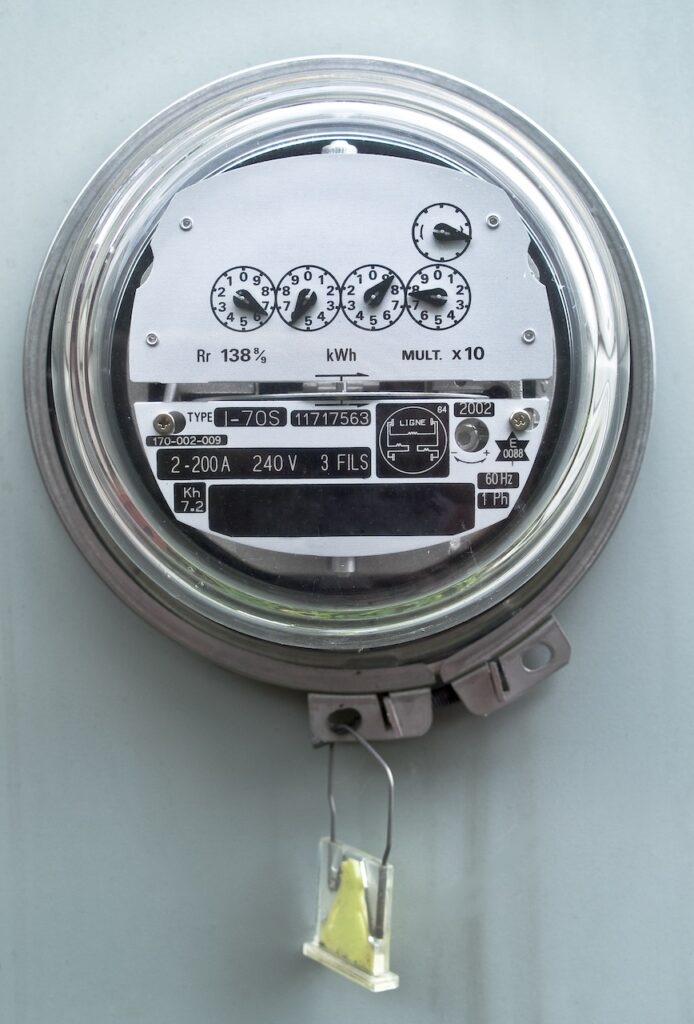Electrical Certificates of Compliance (ECC) are an important legal requirement for all electrical works in Queensland. They provide assurance that any such work has been completed to a safe standard and complies with the relevant regulations outlined by the Electrical Safety Office (ESO). This guide will provide comprehensive information on ECCs, including what they are, when they are required and how you can obtain one.
The process of obtaining an ECC is complex and requires knowledge and understanding of local laws. It is crucial to ensure these requirements are met before starting any electrical projects or making any changes to existing systems. Failure to do so could result in costly delays or fines.
This complete guide aims to assist those who require an ECC in navigating this compliance process. By the end of this article, readers should have gained a better understanding of ECCs and be aware of their responsibilities as property owners or occupiers in ensuring electrical safety standards are adhered to within their own properties.
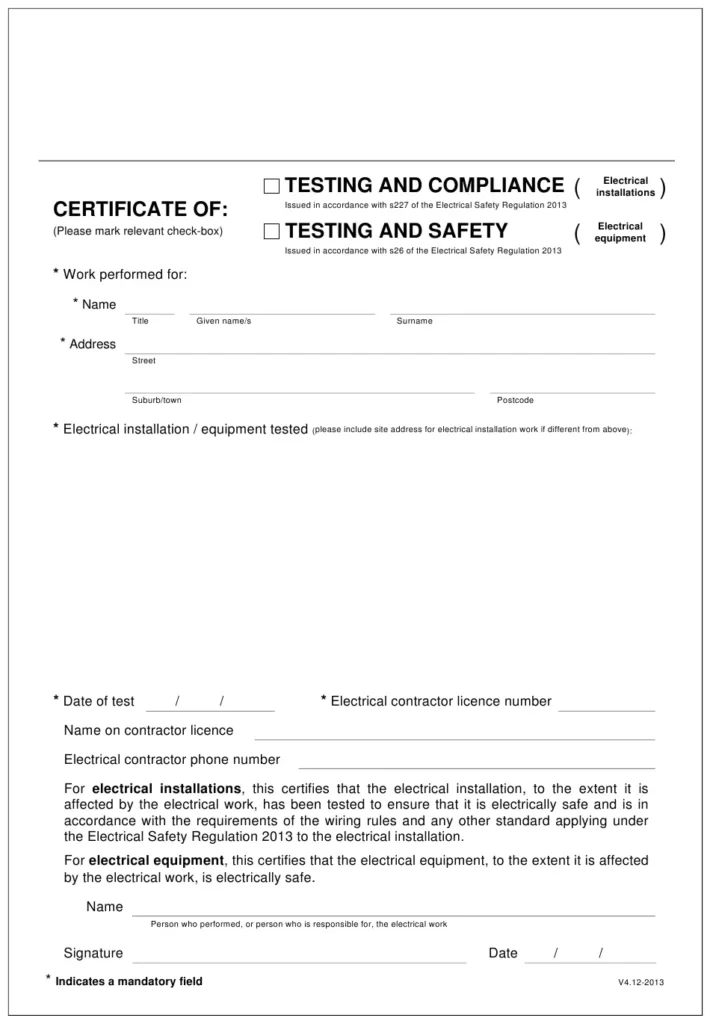
Why Do I Need One?
As of July 2019, the Electrical Safety Office in Queensland reported that over two thousand electrical incidents occurred within one year. As a result, having an up-to-date Electrical Certificate of Compliance (ECOC) is essential for ensuring safety and compliance with relevant standards for all electrical equipment or work in Queensland. An ECOC is issued to certify that the property complies with applicable legislation under the Electrical Safety Act 2002. It is important to recognize that without this certificate of electrical work, it can be difficult to sell or lease any property as it will not meet certain legal requirements.
In order to obtain an ECOC, a licensed electrician must first complete the required electrical work on the premises and ensure it meets all applicable Australian Standards. The electrician must then fill out a form provided by the Electrical Safety Office confirming their completion of the job and submit it along with other documentation such as test results and drawings into the office. After approval from the Electrical Safety Office, they will issue an ECOC which confirms that the work has been completed according to relevant standards and safety laws in Queensland.
Therefore, obtaining an ECOC before selling or leasing your property can significantly reduce risk while also providing peace of mind when dealing with potential buyers or tenants since you know there won’t be any issues regarding safety or compliance with regulations. Moving forward, understanding how to acquire an ECOC is key when considering these transactions.
Do I Need to Keep A Copy Of It?
It is important to keep a copy of your Electrical Certificate of Compliance (ECC) as it ensures that all electrical work and installations in the premises are electrically safe. The ECC also confirms that any wiring or installation has been carried out by an accredited electrician, according to relevant regulations. Failure to retain a copy of the compliance certificate can be costly if any issues arise with the electrical system at a later date.
The Queensland Government states that anyone who owns or occupies a building is legally required to produce an ECC upon request from local authorities such as Workplace Health & Safety or Queensland Fire & Emergency Services. In addition, tenants have rights under the Residential Tenancies and Rooming Accommodation Act 2008 concerning their ability to hold landlords accountable for providing them with valid Queensland electrical certificates prior to occupancy.
For these reasons, it is essential that you keep a copy of your ECC on file either electronically or physically in order to adhere to legal requirements and protect yourself against potential liability should there be an issue with your electrical system down the line. This will ensure compliance with safety standards and provide peace of mind knowing that all electrical systems within the premises are safe. Transitioning into when do I need one by?: It is therefore wise to obtain an Electrical Certificate of Compliance before occupying new premises or whenever major renovations occur; this way, you can guarantee the safety of those inside the building and mitigate risk associated with non-compliance.
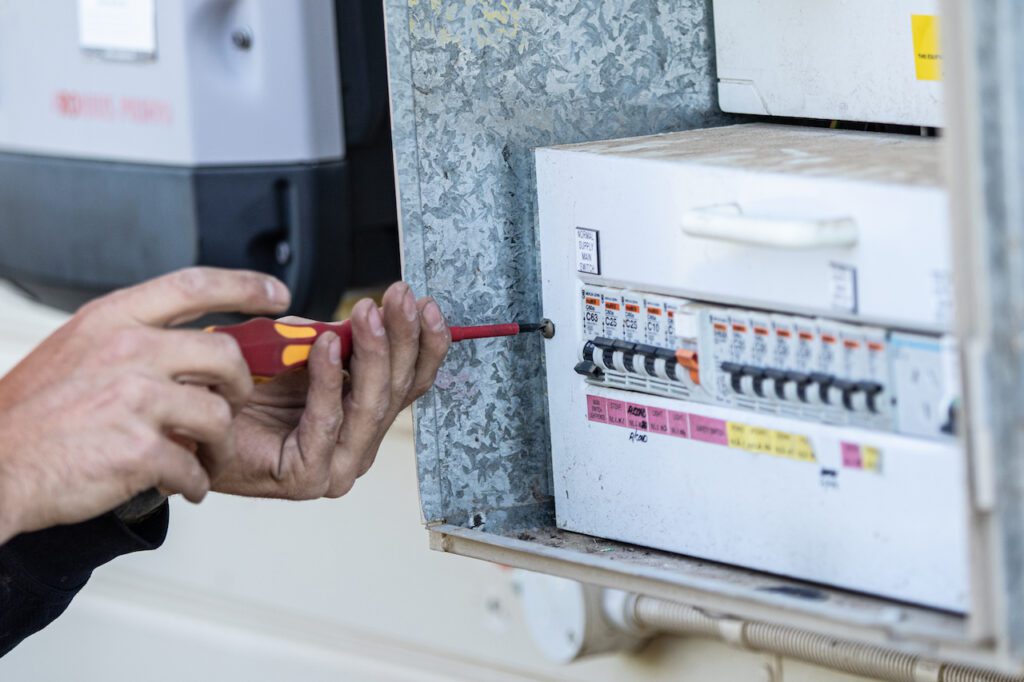
When Do I Need To Get One By?
The ticking clock of electrical compliance looms large, and the need to get a certificate by a certain date can be daunting. But with an understanding of what is required and when it needs to be done by, you can easily stay on top of your obligations.
Before diving into the details, it’s important to know that Queensland has different regulations for residential and commercial properties when it comes to obtaining an Electrical Certificate of Compliance (ECOC). Residential properties must obtain one if they are sold or rented out while commercial buildings require them every five years. Additionally, ECOCs must also be obtained in order to complete building works such as installing air-conditioners in both types of dwellings.
For residential homes, there isn’t a specific time limit within which ECOCs should be acquired but it is recommended that sellers acquire one before putting their home up for sale. This ensures buyers have peace of mind knowing the wiring and fittings meet relevant safety standards. For rental properties, landlords must ensure their property has an up-to-date ECOC prior to tenants moving in and at least once every two years thereafter. Business owners however, need to make sure their buildings have an ECOC prior to occupation and then every five years after that.
Overall, being aware of the necessary requirements from Queensland Building Services Authority will help any person involved in buying, selling or renting out a property maintain legal compliance while keeping occupants safe from potential harm caused by outdated electrical systems
What Is On The Certificate?
An Electrical Certificate of Compliance (ECC) is a document issued by an electrical safety inspector that verifies whether the work completed meets the relevant Australian Standard and any applicable local regulations. The certificate states all details about the installation, including who installed it, when it was inspected, and what components were used. It also includes a description of the scope of works carried out and any special conditions or requirements associated with the job.
The ECC must include information such as: location and type of installation; name and contact details for responsible persons such as owner, installer and electrician; date of inspection; basic characteristics of system/equipment tested; list of tests performed; results from each test (passed/failed); corrective action if required; signature(s). Additionally, other items may be included depending on the nature of the work being certified. For example, some certificates will require supporting documentation to be attached in order for them to be accepted by authorities.
Overall, an ECC is an essential tool that provides assurance that a particular electrical installation has been safely designed, constructed and tested according to current legal standards. This ensures public safety while providing confidence to owners and operators in their compliance with relevant legislation.
Frequently Asked Questions
How Much Does An Electrical Certificate Of Compliance Cost?
An electrical certificate of compliance (ECC) is a document that verifies the safety and quality of an electrical installation. As such, it is an important legal requirement in many countries, including Australia. The cost of obtaining an ECC varies depending on factors such as:
- Location: Different states have different regulations for certification which can affect the price.
- Queensland: In Queensland, the cost may range from around $100 to $500 or more depending on the complexity of the work required to be certified.
- New South Wales: Costs vary but are typically between $200 and $400 for residential properties..
- Type of property/installation: Domestic installations tend to be cheaper than commercial ones due to greater complexity and higher labour costs associated with larger scale projects.
- Type of Certificate Required: Depending on the type of works being carried out there may be additional charges added if multiple certificates are needed e.g. high voltage or hazardous area certifications will incur further costs.
Knowing these various factors allows one to make an informed decision when deciding how much they are willing to spend on their ECCs and what type of certification best suits their needs. Additionally, some electricians offer discounts for repeat customers who need regular inspections and maintenance done on their electrics – always worth enquiring about!
Understanding the importance and relevance of Electrical Certificates of Compliance cannot be understated in providing peace-of-mind regarding any future disputes related to the safety standards achieved by your electrical installation. Without adequate protection via this formality, you could find yourself liable should something go wrong at a later date; making investing in professional assistance now well worth it in terms of saving money long term. Furthermore, having qualified professionals assess your electrics regularly not only ensures you stay compliant with current legislation but also puts your mind at ease knowing that all necessary precautions have been taken to protect those living within your home or business premises from harm’s way while using electricity responsibly.
Who Is Qualified To Provide An Electrical Certificate Of Compliance?
It is often said that knowledge is power. When it comes to electrical certificates of compliance, being in the know can be a literal matter of safety and security. Finding an appropriate qualified provider for this important certification should not be taken lightly – as if lightning were striking twice! With so many regulations and qualifications to consider, who would you trust with your certificate needs?
- Electricians licensed by The Queensland Government (QG)
- Electrical contractors registered with QG
- Engineers accredited by Professional Engineers Australia (PEA)
- Other entities approved by the Electrical Safety Office (ESO)
Each has their own set of requirements and expectations when providing electrical certifications and must adhere to relevant standards or risk penalties from regulatory bodies. An electrician will have experience dealing with circuits, wiring, appliances and other components related to electricity while engineers are trained on designing safe systems according to codes used in the industry. Approved entities may also offer their services but they must meet certain criteria such as having sufficient staff with technical expertise and following ESO rules regarding insurance coverage and paperwork documentation procedures. It’s worth taking the time to research each entity thoroughly before deciding which one best meets your certification needs.
At the end of the day, finding someone who is qualified to provide an electrical certificate of compliance can be a daunting task without proper guidance; however, understanding all available options ensures peace-of-mind knowing that any potential risks associated with faulty wiring or dangerous installations have been properly addressed through expert oversight. By researching every avenue carefully beforehand, customers can rest assured that their electrical system is up-to-code and ready for use after receiving its necessary approvals from trusted providers.
How Often Do I Need To Obtain An Electrical Certificate Of Compliance?
Obtaining an electrical certificate of compliance is a necessary step for the safety and assurance of many Queensland households. It is important to understand how often this needs to be done in order to remain compliant with state regulations.
The frequency at which a person must obtain an electrical certificate of compliance depends on several factors, including whether they are living in rented or owned property, if any renovations have taken place, and other situations that may require additional inspection. In general, it is recommended to get one every four years when residing in either type of property. However, if major alterations have been made or there has been significant wear-and-tear over the past four years then more frequent inspections may be required.
In addition to regular checks, it is also important to ensure all electrical work carried out by contractors is up-to-code and meets Australian standards. This can only be achieved through obtaining certificates from qualified personnel who hold relevant licenses such as electricians or master electricians. A list of approved certifiers can be obtained from local authorities or via online resources provided by the Queensland government.
It is essential for homeowners and tenants alike to comply with state regulations regarding electrical safety and thus regularly undertake these inspections; not doing so could result in serious consequences. Those responsible should seek appropriate advice before making decisions about their home’s electrical operations and consider taking precautionary measures such as installing smoke alarms or getting maintenance conducted by certified professionals annually.
Are There Different Types Of Electrical Certificates Of Compliance?
It is undeniable that the modern world has a need for electrical certificates of compliance. But, this begs the question; are there different types? The answer is yes, and it could be argued that understanding what these various certificates signify can provide an insight into how they might help to ensure our safety in many aspects of life.
To begin with, one type of certificate covers wiring installations within buildings or structures such as hospitals, schools, shopping centers and factories. This kind of certification is issued by a government-approved body upon confirmation that all work completed meets industry standards. Furthermore, when any new equipment is installed at the premises, another inspection must be done before obtaining a certificate from the same approved body. In addition to this, existing wiring systems should also be inspected periodically depending on local regulations – usually once every 12 months or longer.
Another type of electrician’s certificate concerns appliances and other pieces of equipment which require electricity to operate correctly and safely. These may include things like dishwashers, air conditioners or computers – each requiring its own separate assessment based on manufacturer instructions and applicable laws in order to obtain certification. Despite being slightly different than the first form mentioned previously, these inspections still verify if everything is functioning well enough not to cause harm to people who use them regularly.
In short then, while certain certifications have specific requirements related to those particular items they cover, the overall purpose remains broadly similar: providing assurance that all components involved are safe for use whether it’s within a building structure or something used directly by humans everyday without fail. As such, having knowledge about how electrical certificates vary from one another helps us understand why their importance cannot be taken lightly.
Is An Electrical Certificate Of Compliance Mandatory In Queensland?
An electrical certificate of compliance is a document that states the installation or repair work performed on an electrical system complies with applicable safety regulations. In Queensland, it is mandatory for any licensed electrician to provide this certification when carrying out work in accordance with the Electrical Safety Act 2002 (Qld).
The requirement for an electrical certificate of compliance applies regardless of whether the job involves new construction, maintenance, or repairs. It serves as evidence that all relevant safety standards have been met and the installation is safe and compliant. This protects both property owners and tenants from potential hazards caused by faulty wiring and other related issues.
To ensure full compliance, there are several elements required in a valid electrical certificate of compliance:
- Documentation outlining details of the works undertaken;
- Certification that all materials used meet Australian Standards;
- The date and time of completion;
- Details of the person who completed the works.
These documents must be signed by a qualified electrician who holds a current licence issued by Energy Safety Queensland. Without one, landlords may face penalties from noncompliance with local laws which can result in hefty fines or legal action taken against them if necessary. Therefore, obtaining an electrical certificate of compliance is essential for anyone wanting to keep their property up to code.

